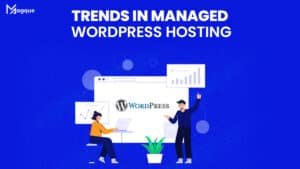In the digital age 2023, having a website is not just an option but a necessity. Whether you’re a budding entrepreneur, a blogger, an artist, or a small business owner, a well-crafted website is your digital storefront. However, choosing the right one can be daunting with the plethora of website builders available. In this article, we’ll explore the best website builders for 2023, making your decision-making process more manageable.
Table of Contents
- Introduction
- Why Choose the Right Website Builder Matters
- Top Factors to Consider
- Ease of Use
- Customization Options
- Mobile Responsiveness
- SEO Friendliness
- Our Top Picks for 2023
- Wix
- Squarespace
- WordPress
- Shopify
- Comparative Analysis
- Pricing
- Templates and Design
- E-commerce Features
- Blogging Capabilities
- Pros and Cons
- Wix
- Squarespace
- WordPress
- Shopify
- Choosing the Best Website Builder for You
- Conclusion
- FAQs
Introduction
In the digital landscape of 2023, your website is often the first interaction potential customers have with your brand. It’s a virtual representation of your business, and its quality can significantly impact your online success. Therefore, selecting the right website builder is paramount.
Why Choose the Right Website Builder Matters

Your website builder choice affects various aspects of your online presence, from design flexibility to search engine optimization (SEO). Here’s why it matters:
Ease of Use
A user-friendly website builder ensures you can create and update your site without a steep learning curve. It lets you focus on your content and business rather than struggle with complex tools.
Customization Options
The ability to customize your website’s appearance and functionality is essential. A good website builder offers a range of templates and lets you tweak them to match your brand.
Mobile Responsiveness
With the increasing use of mobile devices, having a website that looks and functions well on smartphones and tablets is crucial for reaching a broader audience.
SEO Friendliness
A website builder that supports SEO practices helps your site rank higher on search engine results pages (SERPs), driving organic traffic to your website.
Top Factors to Consider
Before we delve into our top picks for 2023, let’s explore the essential factors to consider when choosing a website builder.
Our Top Picks for 2023
Here are our top website builder picks for 2023:
Wix
Wix is known for its user-friendly interface and a wide range of templates. It’s an excellent choice for beginners and small business owners looking to establish an online presence quickly.
Squarespace
Squarespace is renowned for its stunning design templates, making it a top choice for creative professionals and artists. It also offers robust blogging and e-commerce features.
WordPress
WordPress is a versatile platform that suits bloggers, content creators, and businesses. Its extensive plugin library allows for virtually unlimited customization.
Shopify
Shopify is the go-to platform for e-commerce businesses. It offers a seamless shopping experience for businesses and customers, focusing on selling products online.
Comparative Analysis
To help you make an informed decision, compare these top website builders based on critical criteria.
Pricing
- Wix: Offers various pricing plans, including a free option with a Wix-branded domain.
- Squarespace: Starts at a reasonable monthly fee, with domain registration included.
- WordPress: Free to use, but you’ll need to pay for hosting, premium themes, and plugins.
- Shopify: Offers different pricing tiers, with transaction fees for lower-tier plans.
Templates and Design
- Wix: Provides a vast collection of templates catering to different industries.
- Squarespace: Known for its stunning and artistically designed templates.
- WordPress: Offers a wide range of free and premium themes for diverse purposes.
- Shopify: Focuses on e-commerce-specific design templates.
E-commerce Features
- Wix: Offers e-commerce functionality but may not be as robust as Shopify.
- Squarespace: Provides excellent e-commerce tools for selling products.
- WordPress: Requires plugins like WooCommerce to create a full-fledged online store.
- Shopify: Specializes in e-commerce with a user-friendly interface.
Blogging Capabilities
- Wix: Allows essential blogging but may not be as feature-rich as WordPress.
- Squarespace: Offers advanced blogging features suitable for content creators.
- WordPress: Known for its robust blogging capabilities and extensive plugin support.
- Shopify: Less focused on blogging compared to the other platforms.
Pros and Cons
Let’s weigh the pros and cons of each website builder:
Wix
Pros:
- User-friendly interface.
- Abundance of templates.
- Good for beginners.
Cons:
- It may not be as customizable as other options.
- Limited e-commerce capabilities.
Squarespace
Pros:
- Stunning design templates.
- Robust e-commerce and blogging features.
- Suitable for creative professionals.
Cons:
- Slightly higher pricing.
- Limited third-party integrations.
WordPress
Pros:
- Highly customizable.
- Extensive plugin library.
- Suitable for various types of websites.
Cons:
- Steeper learning curve.
- Requires third-party hosting.
Shopify
Pros:
- Specialized in e-commerce.
- User-friendly for online stores.
- Integrated payment options.
Cons:
- Transaction fees on lower-tier plans.
- Less flexible for non-e-commerce sites.
Choosing the Best Website Builder for You
The best website builder for you depends on your specific needs and goals. Consider factors like your budget, design preferences, and the nature of your website.
Conclusion
In 2023, having an online presence is essential for individuals and businesses. Choosing the right website builder can make or break your online success. Consider your unique requirements, explore our top picks, and embark on your digital journey with confidence.
Read More:- Best Web Hosting Providers of 2023
FAQs
1. Do I Need Technical skills to use These Website Builders?
Most website builders are designed for users with little to no technical expertise, making them accessible to beginners.
2. Can I Switch from One Website Builder to Another in the Future?
Yes, you can migrate your website to a different builder, but it may require some effort, especially if you have a lot of content.
3. What’s the Cost of Running a Website with These Builders?
Costs vary depending on the builder and your specific requirements. It can range from free (with limitations) to a monthly subscription and hosting fees.
4. Are there any SEO Tools Included in these Website Builders?
Most website builders offer essential SEO tools, but you may need to use third-party plugins or services for advanced SEO.
5. Which Builder is Best for an Online Store with a Large Product Catalog?
Shopify is the preferred choice for e-commerce businesses with a substantial product inventory due to its specialized features.
In conclusion, selecting the best website builder for your needs is crucial. Take your time to assess your requirements and explore the options mentioned here to ensure your online presence thrives in 2023.













